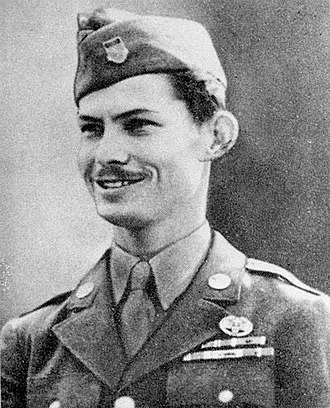Religion
Related: About this forumMel Gibson's "Hacksaw Ridge": Religious Pomp Laced With Pornographic Violence

Mel Gibson’s decision to focus on extreme bloodshed in “Hacksaw Ridge” counteracts the film’s higher moral purpose. PHOTOGRAPH BY MARK ROGERS / LIONSGATE / EVERETT
By Richard Brody, 05:00 P.M.
Here is a hack screenwriter in 1940, adding the finishing touch to a script: “Boris: (moved) War purifies and regenerates!” This hack (a creation of F. Scott Fitzgerald) finds his equivalent today in an esteemed director who, while making a film that expresses his revulsion for war and admiration for courage under fire, laces it with a fulsome strain of pornographic violence that counteracts his movie’s higher moral purpose. The director is Mel Gibson and the movie is “Hacksaw Ridge”; the subject is the true story of Desmond Doss, the only conscientious objector to have been awarded the Congressional Medal of Honor, for his bravery as a medic during the battle for Okinawa, in 1945.
Desmond (played by Andrew Garfield), a Seventh-Day Adventist from Virginia, enlisted for service, but as a medic. He not only refused to fight (due to his literal interpretation of the commandment “Thou shalt not kill”) but refused to even touch a rifle. Labelled a conscientious objector, he preferred to call himself a “conscientious coöperator” because, as an enlistee, he was devoted to serving the U.S. war effort, albeit by saving lives rather than taking them. Desmond (which we’ll call him to distinguish the character from the historical figure) is derided and punished by his sergeant (Vince Vaughn); mocked, brutalized, and ostracized by the other members of his company; and even subjected to a court-martial. But he also displays exceptional bravery in the scenes of war—lengthy and horrifically bloody, bullet-riddled and fiery, scream-wracked and explosion-shuddered—that are the very essence of Gibson’s film. Confronting enemy fire atop a plateau accessible only by climbing a sheer rock face, he searches for wounded survivors and lowers them, single-handedly, by means of ropes and knots of his own devising, to an Army base below.
The story is rooted in war and starts with war, and those scenes, at the start and, even more later on, are replete with mutilations and agonies, sprays and spurts of blood and cascades of human meat, seen in sharp detail and often shown in slow motion, which expresses a pleasure in staging and observing such grotesque and horrific violence—a pleasure that’s immediate, extra-moral, and personal. From the battlefield action that’s the film’s very raison d’être, Gibson (working with a script by Robert Schenkkan and Andrew Knight) builds a narrative that gets its deterministic backstory from another war as well—and from Desmond’s troubled relationship with his father, Tom (Hugo Weaving).
A veteran of the First World War who lives in harrowed, alcohol-benumbed grief, Tom lost his three best friends in that war and spends much of his time talking to their graves. He cruelly and casually beats Desmond and his brother Hal with a belt; he also hits Bertha (Rachel Griffiths), his wife and their mother. The movie offers two determining events from Desmond’s childhood. (He’s played, during that period, by Darcy Bryce.) In the first, Desmond nearly kills Hal with a brick during a play-fight; seized by remorse, he stares fixedly at a poster in the family home that illustrates the Ten Commandments, and obsesses about the sixth, “Thou shalt not kill.” But the decisive primal scene, which crops up piecemeal throughout the film, involves young Desmond protecting his mother from Tom by pulling a gun on his father; though he doesn’t pull the trigger, he is definitively horrified by the possibility of causing death and, from that moment on, abjures the use of firearms.
http://www.newyorker.com/culture/richard-brody/mel-gibsons-hacksaw-ridge-religious-pomp-laced-with-pornographic-violence
Xipe Totec
(43,890 posts)rug
(82,333 posts)Xipe Totec
(43,890 posts)I don't care what the story is.
Mel?
Fuck him.
I'll wait for another rendition, or read the story at the library.
rug
(82,333 posts)Xipe Totec
(43,890 posts)Response to Xipe Totec (Reply #7)
AtheistCrusader This message was self-deleted by its author.
struggle4progress
(118,290 posts)4lbs
(6,858 posts)and the majority of the actors are Australian. The other people (writer, cinematographer, etc.) are also nearly all Australian or New Zealanders. The movie itself was also filmed in Australia.
rug
(82,333 posts)4lbs
(6,858 posts)shunned. I doubt any Jewish backers would get involved with Gibson after his anti-Semitic statements.
Furthermore, the Jewish population in Australia and New Zealand is about 0.5%.
Thus, an actor being Australian... I think it's a pretty safe bet (99%) that they ARE NOT Jewish.
CurtEastPoint
(18,646 posts)rug
(82,333 posts)
longship
(40,416 posts)rug
(82,333 posts)longship
(40,416 posts)(Just could not resist poking Mel in the ribs.)
Hope you are well. I have been avoiding this group. I miss it. However, the environment does not seem friendly to discussing religion. Kind of invites the question about what is the purpose of a religion group if not to respectfully discuss religion.
![]()
Shankapotomus
(4,840 posts)But I think Mel still has a long way to go before I ever waste my time or money on one of his films.
This is a person who has lashed out at women and Jewish people and his "comeback" film is about glorifying a pacifist Christian man?
It's hard for me to believe this new movie is anything more than just another sideways mirror for Mel to glorify and justify himself.
